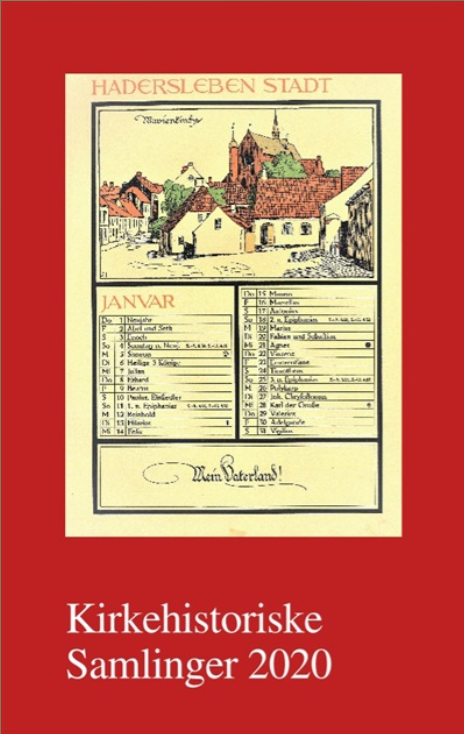Publiceret 15.12.2020
Citation/Eksport
Copyright (c) 2020 Tidsskriftet Kirkehistoriske Samlinger

Dette værk er under følgende licens Creative Commons Navngivelse – Ingen bearbejdelser (by-nd).
Resumé
Den danske teolog Enevold Ewald (1696-1754) kom oprindeligt fra Sønderjylland, men virkede som præst ved Det Kongelige Vajsenhus fra 1728 til 1754. At Ewald satte et markant aftryk på samtidens teologi, er der i forskningslitteraturen bred enighed om, men hvilken teologi, Ewald prædikede og udvirkede fra Vajsenhuset, besvares derimod langt fra entydigt. Artiklen indkredser Ewalds teologi ud fra hans virke ved Vajsenhuset, herunder hans engagement i distributionen af den pietistiske opbyggelseslitteratur, hvor selvprøvelsen udgør et centralt omdrejningspunkt, samt ud fra hans teologiske argumenter imod den gældende skriftemålspraksis, under hvad der betegnes som »skriftemålsstriden« i 1733. Under striden fremhævede Ewald selvprøvelsen som alternativ til skriftemålet, da individet gennem denne fromhedsaktivitet ved præstens hjælp ville opnå dybere indblik i sin åndelige tilstand samt få klarhed over sit sande frelsegrundlag. På denne baggrund undersøger artiklen, om Ewalds selvprøvelsesprogram, der spores både i udbredelsen af den pietistiske opbyggelseslitteratur og i indlæggene fra skriftemålsstriden, også kan anvendes som en hermeneutisk nøgle til Ewalds prædikener.
Summary
Enevold Ewald’s Program of Self-Examination. Enevold Ewald (1696-1754) served as a leading pastor at The Royal Orphanage House in
Copenhagen from 1728 until 1754. He was a theological influencer by means of his publishing of devotional literature through the orphanage’s publishing house. A crucial subject in this pietistic devotional literature was self-examination – a method for the Christian individual to gain insight into its spiritual condition. Self-examination was a significant and important pietistic activity, according to Ewald; it is obvious in his position and contribution to the dispute of the ecclesiastical ritual of confession in 1733. Files from the collection of manuscripts called Den Ledreborgske Håndskriftsamling, folio 398, The Ledreborg Files, are now in The Royal Danish Library. They reveal Ewald’s rejection of all external confessions, and in contrast, how he encourages individual self-examination as a means of experiencing the individual’s true spiritual condition.
This article is a study in the program of self-examination put forward in Ewald’s distribution of pietistic devotional literature and in his letter from the theological controversy in 1733. It offers a hermeneutic key to Ewald’s sermons, ‘Harmonierne’. In the sermons, Ewald makes use of a typological reading of the Bible by which he describes four spiritual conditions between which Christians move in their religious lives. The purpose of a typological reading of the Bible is to establish an identification of the Christian with different biblical types that represent different spiritual conditions. Implicitly the sermons urge the listener to self-examination. Another condition, which corroborates the interpretation of Ewald’s program of self-examination, are the closing applications of the sermons. The final applications explicitly urge the listener to self-examination. The article concludes that self-examination is a general figure in Ewald’s different activities and that the concept offers us a key to the understanding of his theological position and intention.

